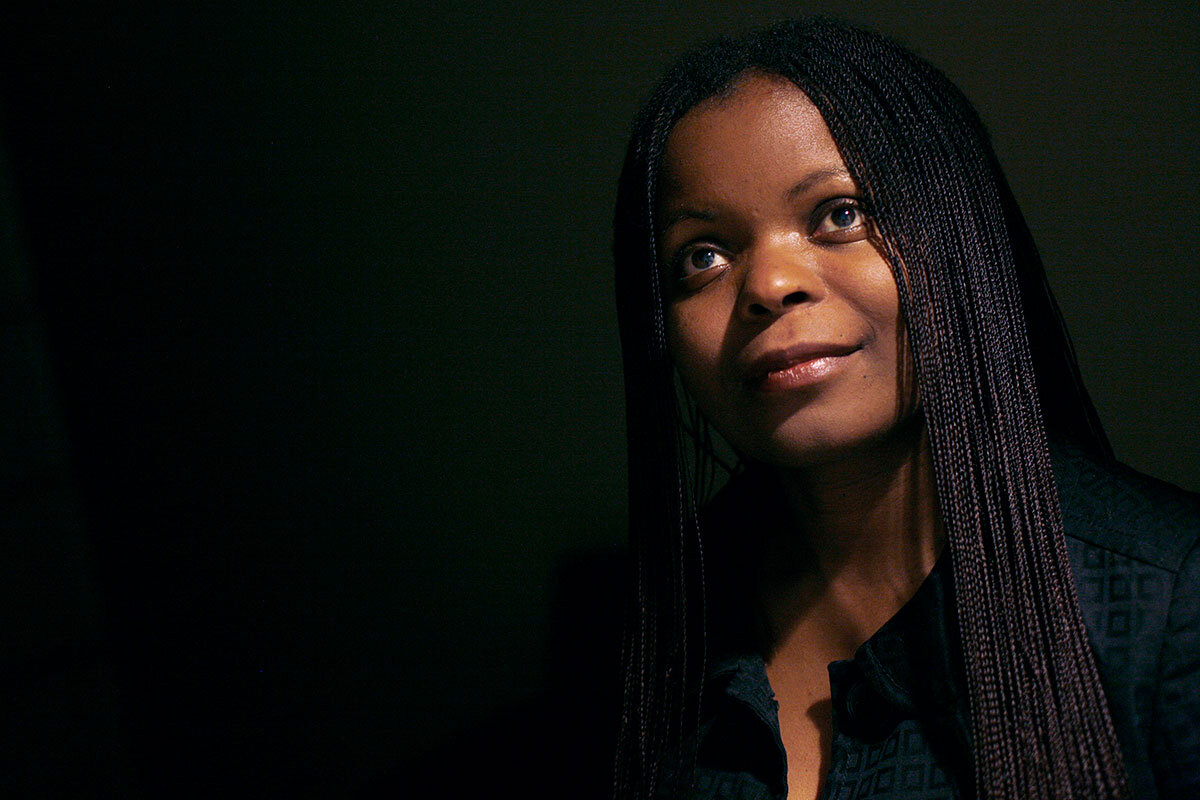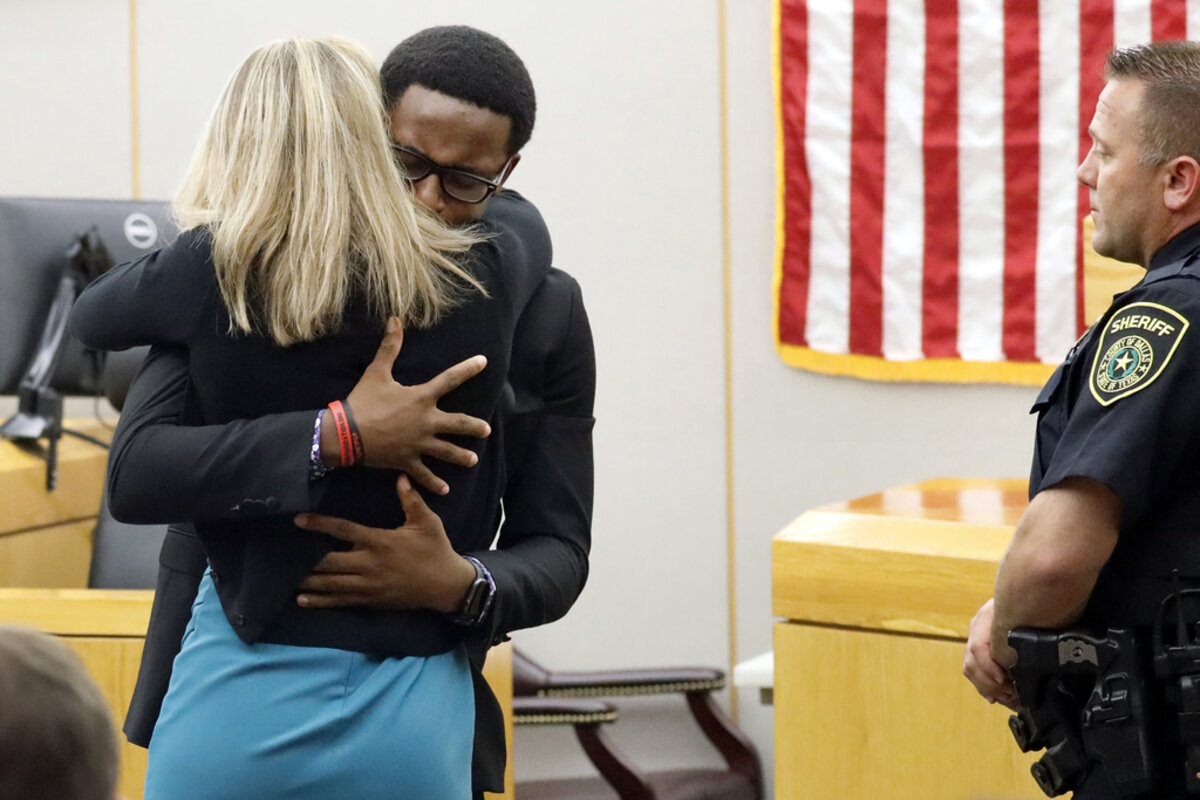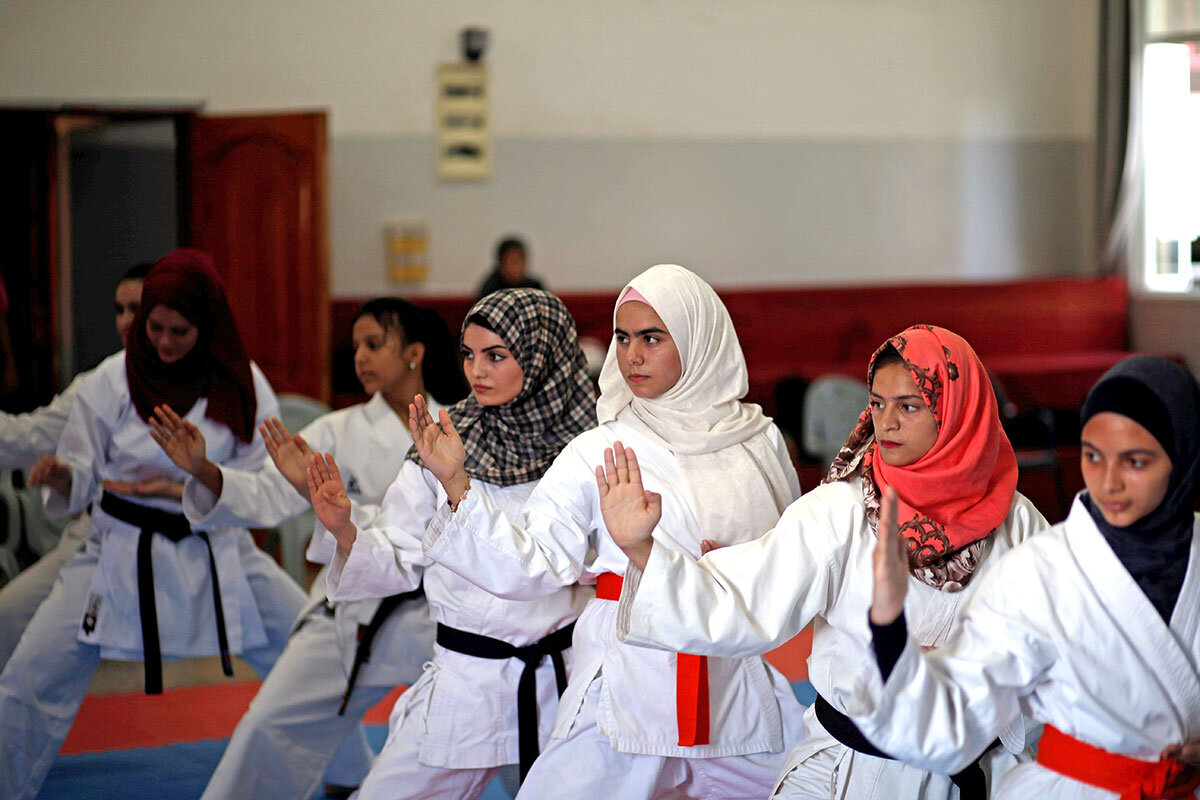Foreign relations are, on one level, fundamentally about getting what a country wants. But President Donald Trump’s patterns of behavior show another motive as well – getting what he wants personally.
Monitor Daily Podcast
- Follow us:
 Mark Sappenfield
Mark Sappenfield
In today’s Daily, our five stories offer a broader perspective on President Donald Trump’s Ukraine dealings, Rust Belt puzzlement at talk of an economic slowdown, an examination of what political contrition truly looks like, Canada’s mixed messages on climate change, and the women authors who are changing African history, one book at a time.
But first, a story so moving we couldn’t ignore it.
The woman in front of Brandt Jean had killed his brother. She had walked into his brother’s apartment, thinking it was her own, and shot the black man as he ate ice cream. Outside the courtroom came chants of “no justice, no peace” over the 10-year sentence given to the off-duty white police officer.
But Mr. Jean asked to give Amber Guyger a hug. “I love you just like anyone else. I’m not going to say I hope you rot and die just like my brother did, but I personally want the best for you,” he . “I know that’s exactly what [my brother] Botham would want … and the best would be, give your life to Christ.”
The act harked back to the forgiveness shown to a white supremacist who shot nine black congregants of the Emanuel African Methodist Episcopal Church in Charleston, South Carolina, in 2015. And it underlines the extraordinary and unbroken line of grace in the African American church – a tradition rooted in everything African Americans have endured since slavery, historian Jemar Tisby .
He points to civil rights activist Fannie Lou Hamer, who said, “Ain’t no such a thing as I can hate anybody and hope to see God’s face.”
But how often is this grace given in the other direction? Mr. Tisby says it often seems black people are “never extended that same grace in the public mind.”
Yesterday’s scenes point to lessons from the black church that are universal, as well as blessings that are limited only by how often they are bestowed.










